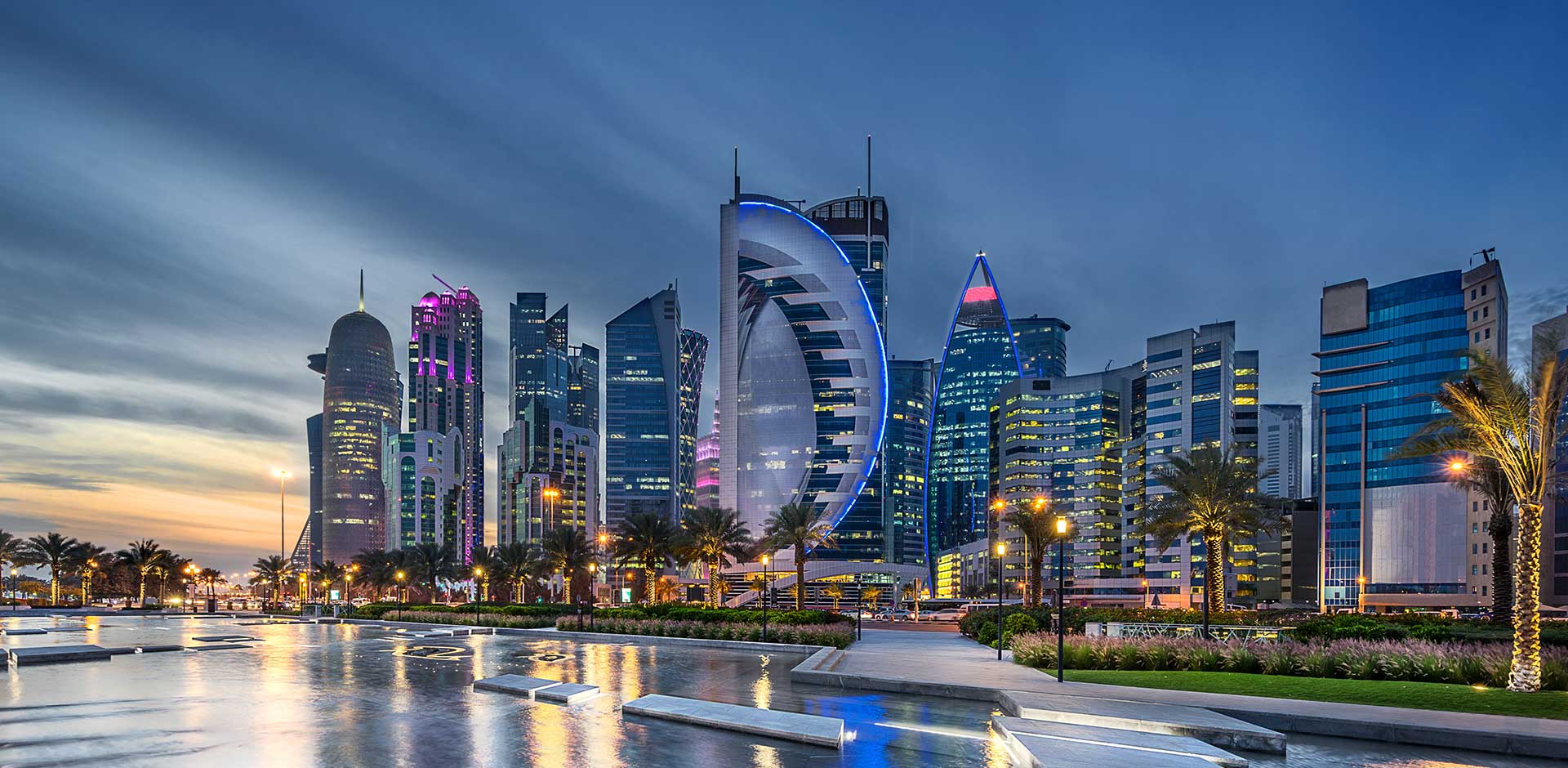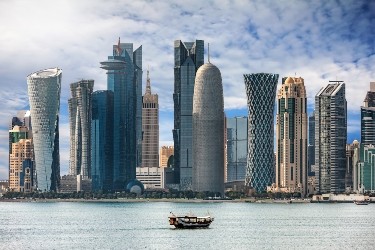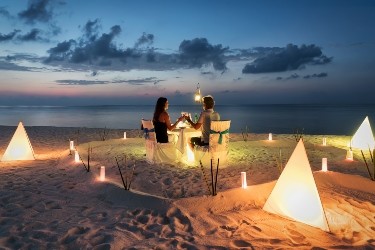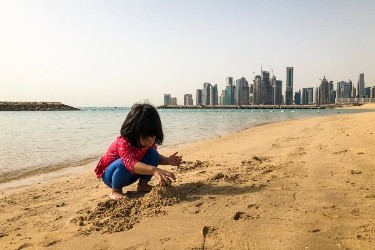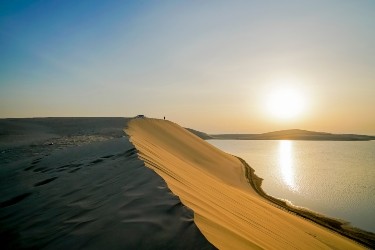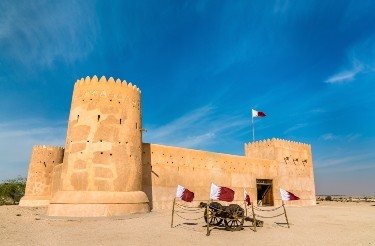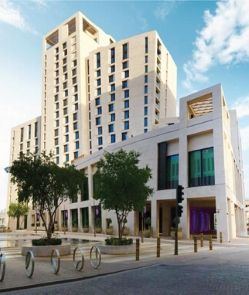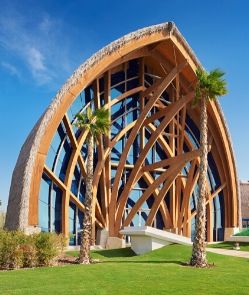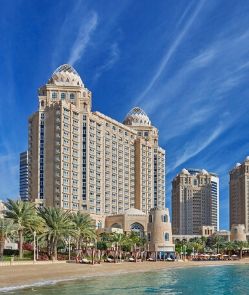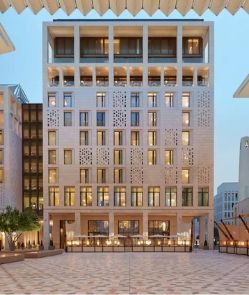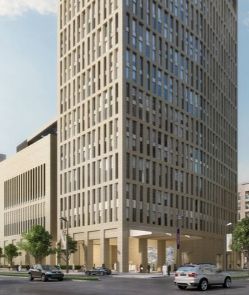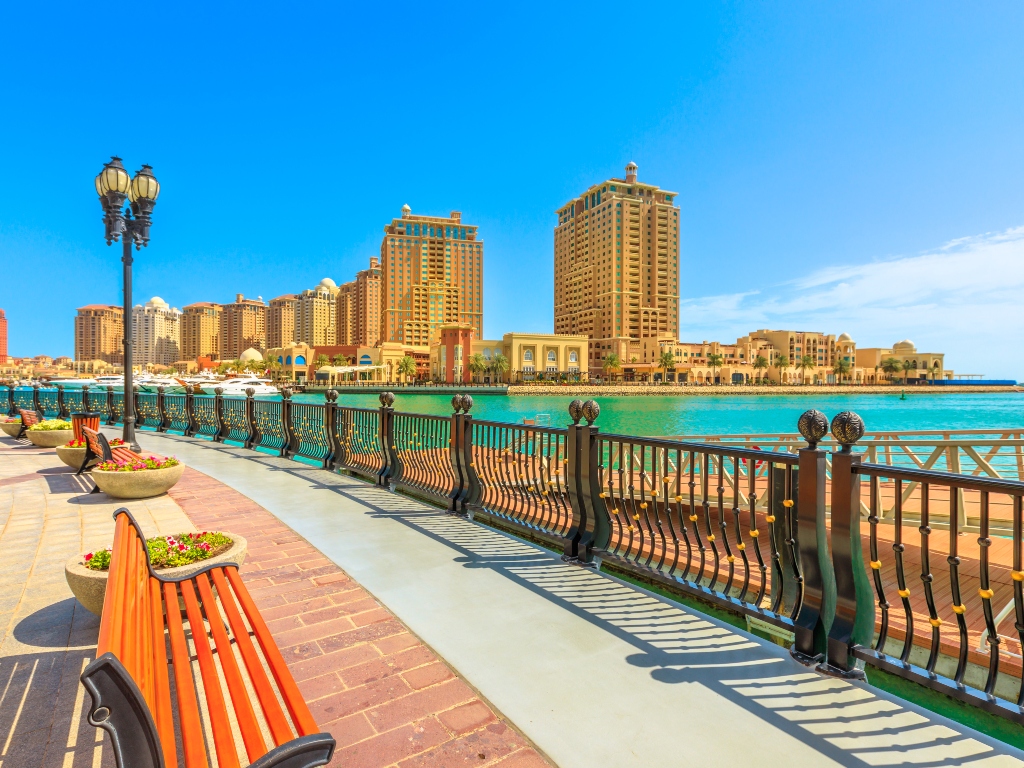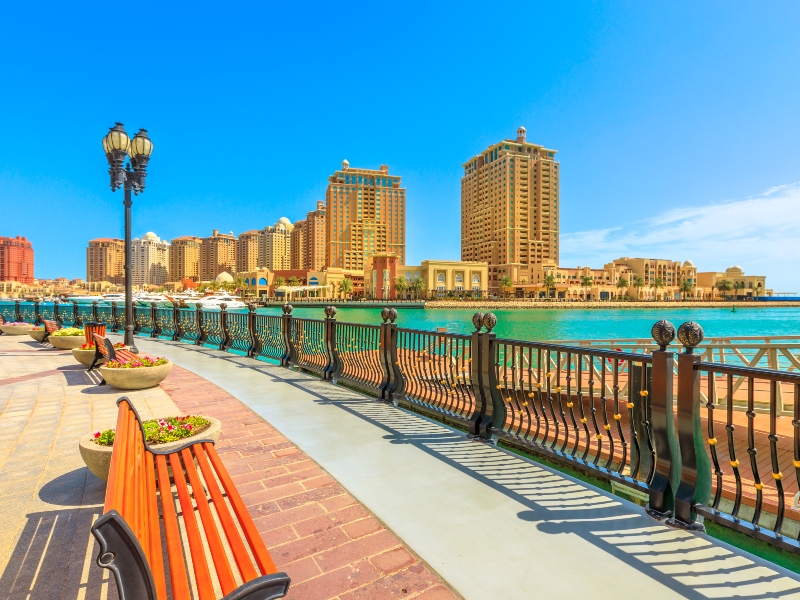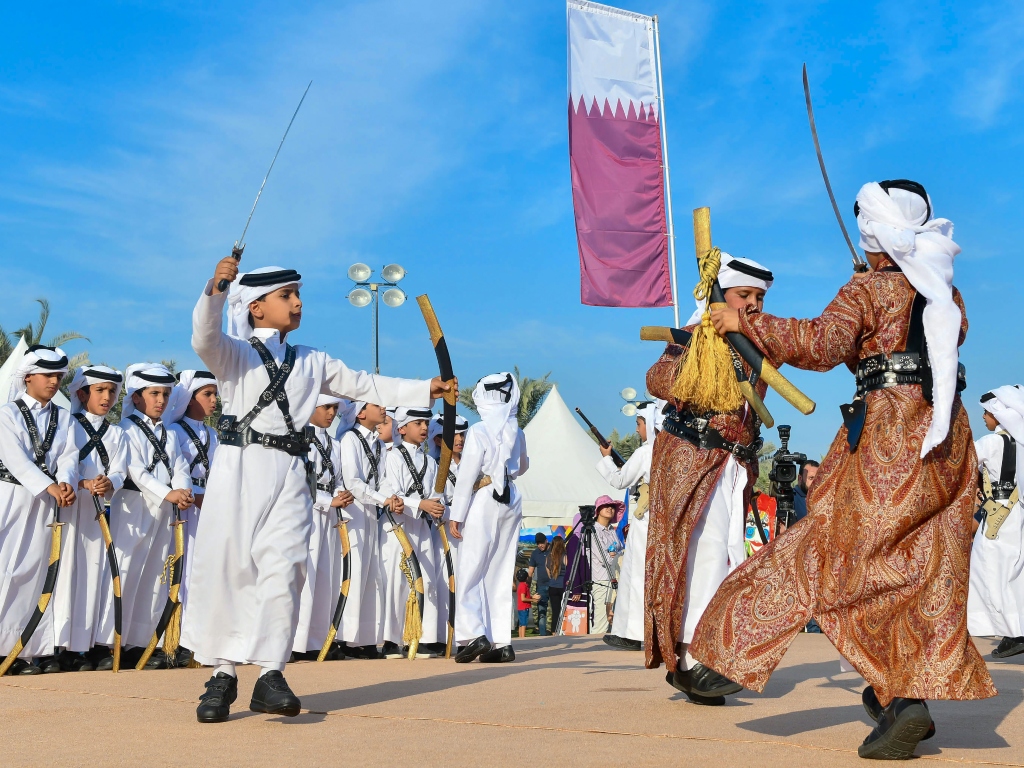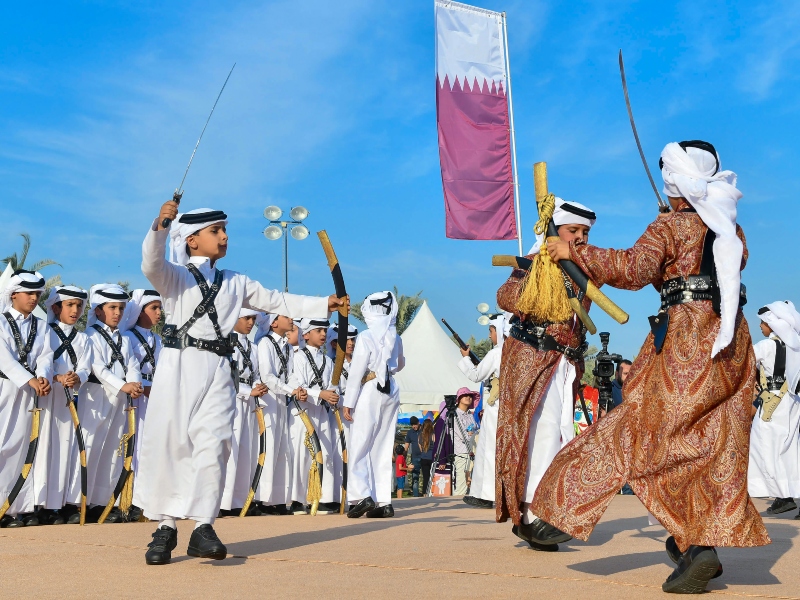
Qatar
Independent as of 1971, Qatar transformed itself from poor British protectorate to one of the richest countries on the planet within a short half-century, fueled by the discovery of extensive natural gas and petroleum reserves both inland and offshore. This newfound wealth and power secured the 2022 FIFA World Cup, which makes Qatar the first Middle Eastern (and the smallest ever) country to host the world’s most-watched sporting event.
A small peninsula protruding out of the Persian Gulf, Qatar measures just 177 miles (188 kilometers) long by 53 miles (85 kilometers) wide. Mostly flat and with no rivers, permanent flowing water sources, or natural lakes, much of the land is desert save for mangroves at Al Khor, scenic salt flats in the southeast and the dazzling skyscraper-strewn capital, Doha. In the dunes, you’ll find ancient forts and contemporary art installations sharing space with camels, sand cats, Asiatic jackals, Arabian ostriches and the nation’s sweetheart, the oryx. In the city, you’ll find museums, mosques, markets, malls and more - arranged around a turquoise bay of bobbing dhow boats, ringed with glass-and-steel and warm sandstone.
Ruled by the Al Thani family as a debated constitutional or absolute monarchy (depending on who you ask), Qatar is a conservative country modeled on Sharia Law. Dressing modestly is expected, alcohol is served only in 5-star hotels and public displays of affection, even physical contact between opposite sexes, is considered taboo. On the other hand, Qataris make up a mere 12% of the population compared to the 88% of expatriates, English is widely spoken and privacy-respecting tolerance is the norm.
For first-timers to the country, Qatar offers a deliciously complex mix of modernity and tradition: robot jockeys sit atop racing camels, falcons are bought at a generations-old souq and treated at a high-tech falcon-dedicated hospital, shisha and tea is consumed cross-legged at the Souq Waqif before a chauffeured drive to the luxurious Hamad International Airport sends you off to your next destination.
Qatar Regions
Explore in-depth information, experiences and highlights by navigating to specific regions using the links below.

Exclusively Asia
With Remote Lands you'll travel with people who have made Asia the solitary focus of their own lifelong adventure. As our guest, you'll discover Asia on a journey that is completely, authentically your own, adapted from our own remarkable experiences and adventures over the years.
With Remote Lands you'll travel with people who have made Asia the solitary focus of their own lifelong adventure. As our guest, in the continent that our north American founders Catherine and Jay have adored and explored for decades, you'll discover Asia on a journey that is completely, authentically your own, adapted from our own remarkable experiences and adventures over the years.
Weather in Qatar
Asia’s diverse weather patterns and seasonal events means you’ll need an expert to help guide you.
- Qatar has a dry, subtropical desert climate, with little rainfall and very hot, humid summers.
- December to February is the cool season and January the coolest month, with temperatures ranging from 57°F to 72°F (14°C to 22°C). Though rainfall is scarce, storms can occur during this period.
- March, April and November are transitional months, with hot, but tolerable, highs of 75°F (24°C).
- May to October is the hot season, with oven-hot temperatures averaging between 90°F and 109°F (32°C to 43°C), though the mercury has been known to rise to 122°F (50°C) in July and August.
- Due to Qatar’s small size and flat topography, weather is similar across the country, though the coast tends to feel cooler than inland and urban Doha can feel hotter.
Multi-Country Specialists
Qatar Goes Well With




Travelogues
An Asia-focused magazine brought to you by Remote Lands - a platform for adventure, luxury, and authenticity from experts and explorers around the continent.
Qatar Opens to International Travel
- Author
- Travelogues
Joining a handful of other destinations in Asia, Qatar has re-opened its borders to international travelers.
Qatar Camel Calving Season
- Author
- Travelogues
Remote Lands mark the end of this year’s camel calving season with the Qatar’s cutest new arrivals, and it’s time to plan for next year.
Dhow You Believe in Magic?
- Author
- Travelogues
From Doha to Dubai and from Abu Dhabi to Muscat, a private dhow cruise is a must-do for the Middle East aesthete: transport from centuries ago and luxury for today.
